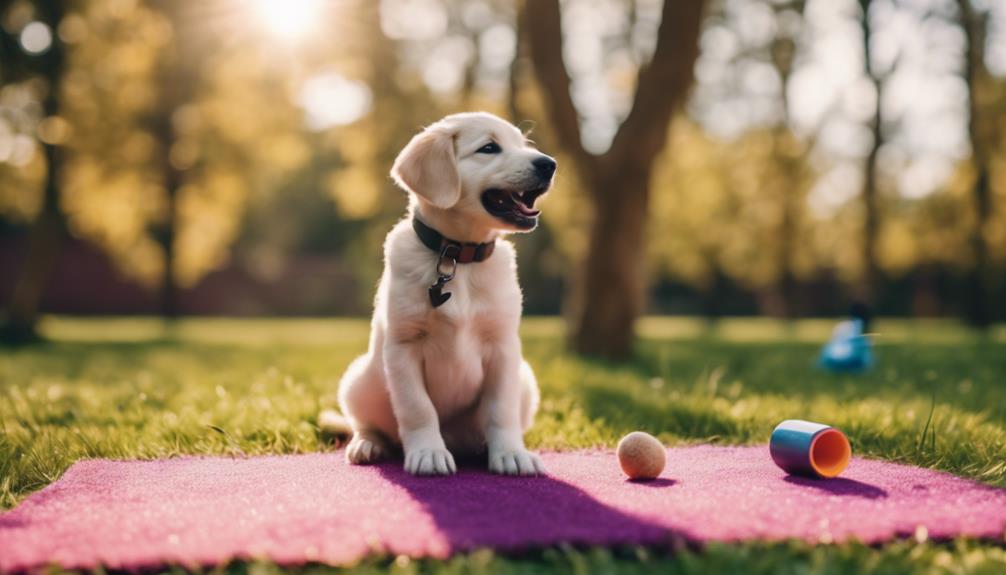Effective command training is fundamental to fostering a well-behaved and responsive pup. Employing strategies that emphasize clarity, consistency, and positive reinforcement can significantly enhance the learning process. It is essential to adapt your approach based on your dog's unique behavior and environmental factors, which can affect their ability to learn commands. Understanding these dynamics not only aids in effective training but also strengthens the bond between you and your pet. As we explore the ten best tips for teaching your pup commands, consider how these methods can transform your training experience.
Understand Corgi Behavior
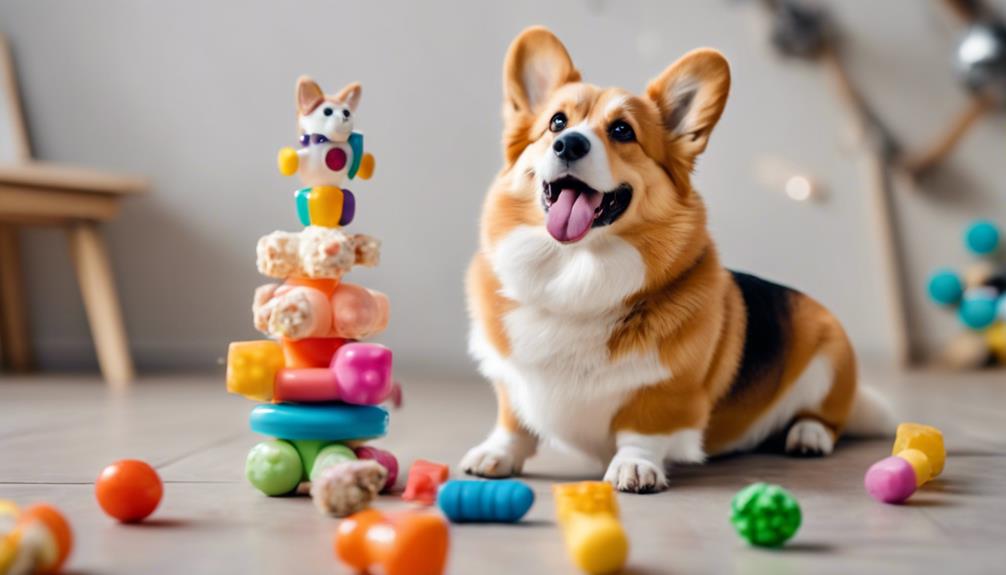
Understanding Corgi behavior is essential for effective training, as these intelligent and spirited dogs exhibit unique traits that influence their response to commands.
Corgis are known for their lively and playful personalities, often displaying a strong desire for social interaction. This highlights the importance of socialization; exposing your Corgi to various environments, people, and dogs can enhance their adaptability and confidence.
Typical corgi personality traits include loyalty, curiosity, and a sometimes stubborn nature, which may affect their willingness to follow commands. Therefore, recognizing these characteristics can make training more effective.
Use Positive Reinforcement
Utilizing positive reinforcement is crucial in training Corgis, as it fosters a strong bond between the dog and owner while encouraging desired behaviors. This method involves rewarding Corgis for good behavior, which helps them understand what is expected.
Effective techniques include:
- Clicker training: Use a clicker to mark the exact moment your dog performs the desired action.
- Reward timing: Deliver treats immediately after the desired behavior to create a clear connection between the action and the reward.
Keep Training Sessions Short
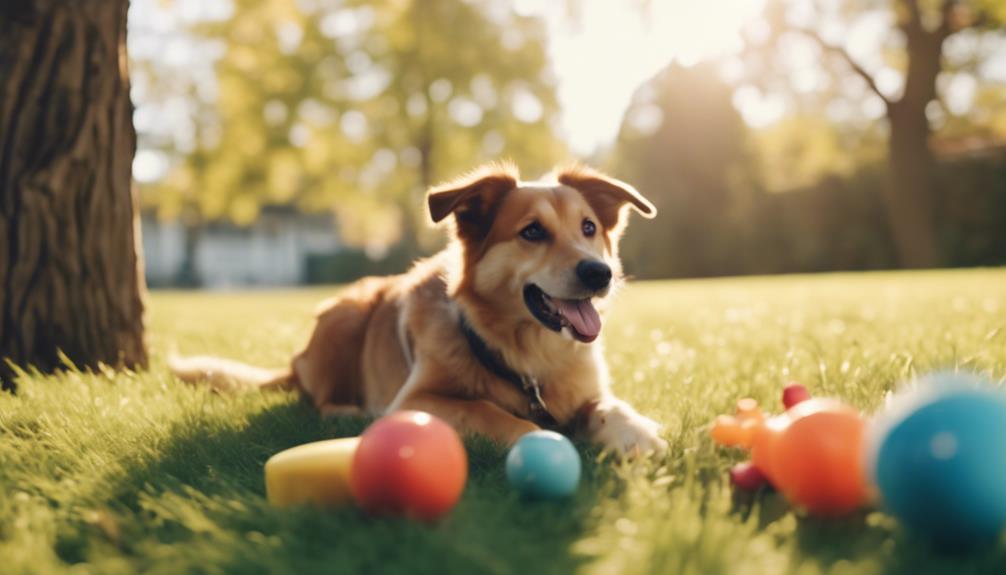
To maximize the effectiveness of training, keeping sessions short is important as it helps maintain your Corgi's focus and enthusiasm. Ideally, each training session should last between five to ten minutes. This training duration allows your pup to absorb new information without becoming overwhelmed or bored.
Additionally, consider increasing the session frequency throughout the week rather than extending individual session lengths. Regular, brief sessions can enhance retention and create a more enjoyable learning experience for both you and your Corgi.
Remember to end each session on a positive note, reinforcing the behaviors learned. This approach ensures that your pup remains eager for the next training opportunity, fostering a strong bond between you and your pet.
Choose Clear Commands
Clarity in command language is essential for effective training, as it helps your Corgi quickly associate specific words with desired behaviors.
Using clear commands enhances command clarity, making it easier for your pet to learn.
Consider the following tips for choosing effective commands:
- Be Direct: Use simple, one or two-word commands like 'Sit' or 'Stay.'
- Vocal Tone Matters: Use a firm yet friendly tone to convey authority while remaining encouraging.
Be Consistent With Commands
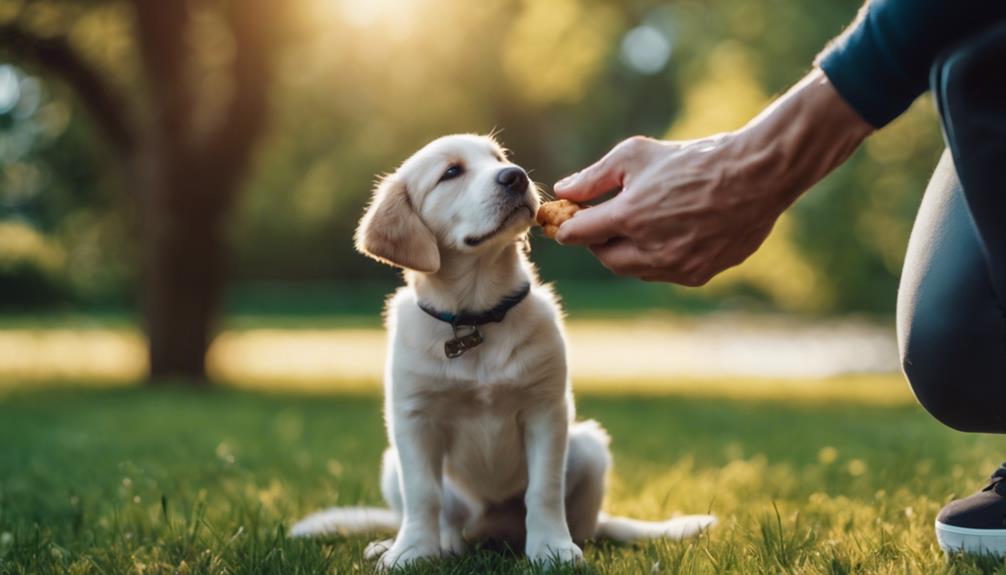
Consistency in the use of commands is crucial for reinforcing your Corgi's understanding and response to training cues.
When teaching commands, be mindful of command variations; using different phrases for the same action can confuse your dog. Stick to clearly defined commands, such as “sit” or “stay,” to ensure your Corgi learns effectively.
Moreover, timing is important in training. Deliver commands promptly, and reward your pup immediately when they respond correctly.
This positive reinforcement strengthens the connection between the command and the desired behavior.
Incorporate Fun and Play
Incorporating fun and play into training sessions not only enhances your Corgi's engagement but also reinforces learning through enjoyable experiences. By integrating interactive games and using training toys, you can make the process more dynamic and appealing.
Here are some effective strategies:
- Use Treat-Dispensing Toys: These toys reward your dog as they learn commands, making the experience gratifying.
- Engage in Fetch: This classic game can be adapted to practice commands like 'come' or 'drop it,' promoting obedience while having fun.
These activities not only solidify training but also strengthen the bond between you and your pet.
Practice in Different Environments
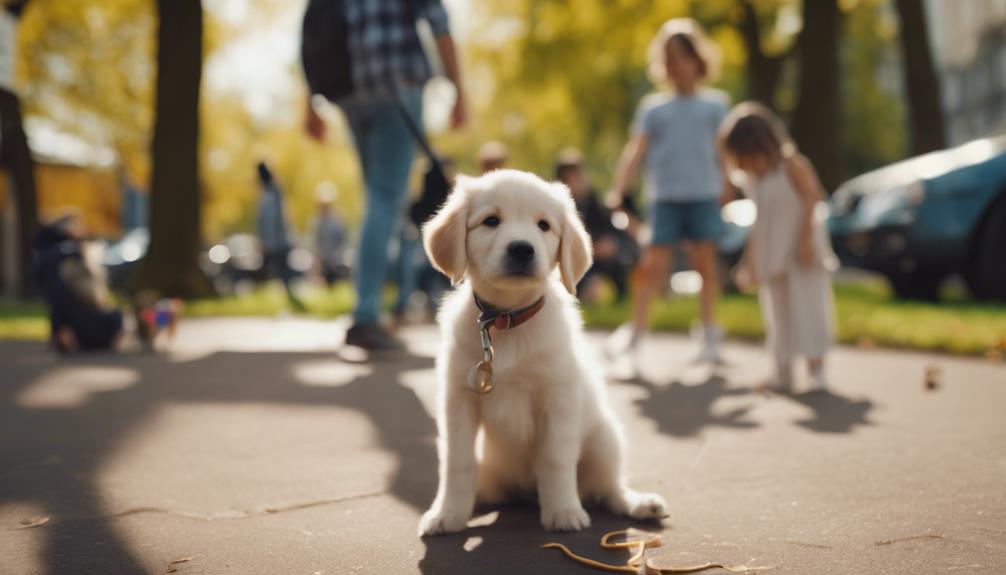
Practicing commands in various environments is essential for ensuring that your Corgi can reliably respond regardless of distractions or changes in surroundings.
This process encourages environmental adaptation, allowing your pet to learn to generalize commands beyond familiar settings. Start training indoors, then gradually move to your backyard, local park, or busy streets.
Each new location presents different stimuli that can either distract or engage your Corgi. By exposing your pup to diverse environments, you promote command generalization, helping them understand that commands apply universally.
Ensure you remain patient and consistent, rewarding your Corgi for successful responses. Over time, your Corgi will become more confident and reliable, enhancing their ability to follow commands in any situation.
Gradually Increase Distractions
As your Corgi becomes more adept at responding to commands in various environments, it is important to gradually introduce distractions to further enhance their focus and obedience. This process helps your dog learn to concentrate despite different stimuli around them, making their training more effective.
Consider these distraction types during training sessions:
- Auditory Distractions: Sounds like doorbells or sirens.
- Visual Distractions: Movement from people or other animals.
Monitor Your Corgi's Progress

Monitoring your Corgi's progress is essential to ensure effective training.
Start by tracking how often your pup successfully follows commands during training sessions, as this will help you identify areas that need improvement.
Additionally, maintain consistency in your training routine and be prepared to adjust your techniques if your Corgi is struggling to grasp a command.
Track Command Success Rates
Tracking the success rates of your Corgi's command responses is essential for identifying areas of improvement and reinforcing positive behaviors. By implementing command tracking techniques, you can better understand your pup's learning journey. Success metrics provide valuable insights into how well your Corgi is responding to commands and where adjustments may be needed.
To effectively track command responses, consider the following steps:
- Use a notebook or app to log each command and response.
- Record the number of successful responses versus attempts.
Use Consistent Training Sessions
Establishing consistent training sessions is crucial for effectively monitoring your Corgi's progress and ensuring that command reinforcement remains a priority. Regular training creates a structured training environment, allowing both you and your Corgi to develop a routine. Sessions should be brief but frequent, ideally lasting 10 to 15 minutes, to maintain your pup's attention.
During these sessions, pay close attention to reward timing; immediate rewards reinforce desired behaviors more effectively. This helps your Corgi understand which actions lead to positive outcomes.
Additionally, keep the atmosphere positive and encouraging, as a relaxed environment fosters learning. By consistently tracking your pup's responses and adjusting the frequency of sessions, you can better gauge progress and adapt your approach for optimal results.
Adjust Techniques as Needed
Regular assessment of your Corgi's responses during training sessions allows for necessary adjustments to techniques, ensuring that the learning process remains effective and responsive to your pup's unique needs.
By monitoring your Corgi's progress, you can determine what works best for them, leading to more successful training outcomes.
Consider the following strategies:
- Adjusting rewards: If your Corgi is not motivated, try different treats or praise methods.
- Adapting timing: Ensure that your timing for commands and rewards is consistent to reinforce learning.
These adjustments can enhance communication and strengthen the bond between you and your Corgi, fostering a more enjoyable training experience.
End on a Positive Note
Concluding each training session with positive reinforcement not only enhances your dog's learning experience but also strengthens the bond between you and your pup. Ending on a positive note can involve offering training rewards like treats, praise, or playtime. This approach reinforces good behavior and ensures your dog associates training with enjoyable experiences.
To effectively implement this, consider the following tips:
- Always use high-value treats your dog loves.
- Offer verbal praise or affection when your pup successfully follows a command.

